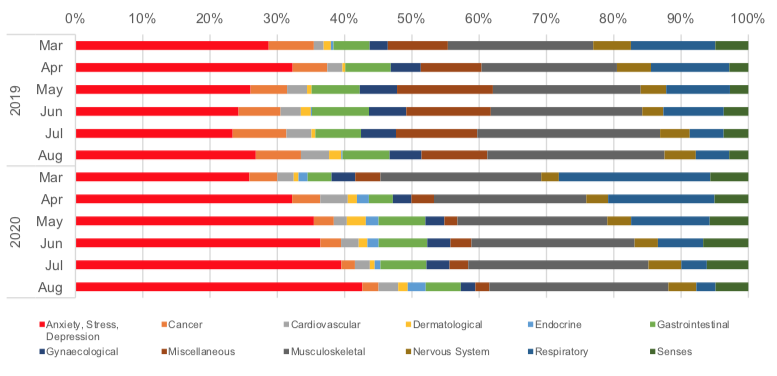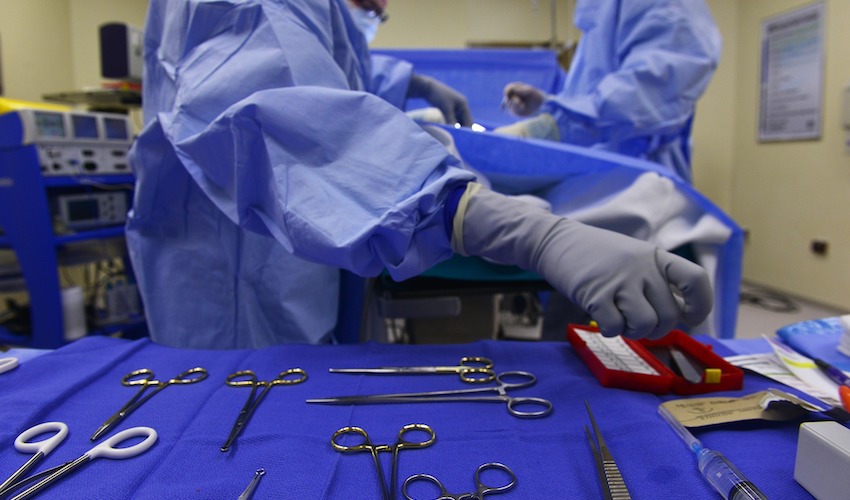


Unresolved bullying in operating theatres is affecting the care some hospital patients receive, with some staff apparently even unable to work in the same room as certain colleagues, a damning report leaked to Express has revealed.
Felix Choto, a specialist theatre nurse from the UK, spent four weeks "embedded" within operating theatres as part of an internal review of the hospital’s main theatre and day surgery unit (DSU) services.
He produced a report at the end in June finding issues requiring “urgent” improvement in relation to leadership and conflict management. The Government said it has now set up a ‘Task and Finish’ group to deal with these, and already started investing into improving operating theatre services.
Until now, the £12,000 report has never been made public – the Government had previously refused to release it under the Freedom of Information Law, arguing that it needed a “safe space” in which to discuss improvements.
However, it was leaked to Express just as non-urgent operations at the hospital are resuming following a months-long suspension due to non-covid-related staff sickness.

Pictured: Mr Choto spent four weeks "embedded" within operating theatres at the hospital.
In his report, Mr Choto noted the “health, wellbeing and morale of front-line workers” had been profoundly affected by the pandemic and post-pandemic recovery phase and raised several issues affecting staff morale.
He highlighted that operating theatres have the highest number of staff on long-term sickness - the cause of which has been attributed to stress, whilst staff reported how they had experienced “a steady but also continuous decline in morale” over the last three years.
According to recently released figures, between March and August 2020, 35% of the sickness days taken by employees within Health were related to anxiety, stress or depression, which was by far the largest reason for time off due to illness.
In August, this rose to 43%.
Mr Choto said employees had unanimously expressed the need to be “acknowledged, valued and respected”, with some having reported they felt useless and that showing initiative was not welcome, while suggestions were not valued.

Pictured: Sickness rates due to mental wellbeing issues have risen within the Health department.
“Some reported that it has been years since anyone came and said to them well done for your hard work,” Mr Choto wrote.
Mr Choto also raised concerns over the fact that conflict is present even within small teams with management having been identified as the source of the “negative organisational culture”, which infiltrated “pockets” within some departments.
He added that conflict affected “all levels of the departments” and sometimes even reached other parts.
“Of particular concern is that some unresolved conflict has also found its way to a regulatory organisation because of a lack of belief in the internal systems,” he wrote.
Mr Choto said there was a “very high number” of unresolved bullying and counter bullying allegations with the nursing and support staff groups, which have now started to impact patient care on various levels.

Pictured: Staff shortages led to the suspension of non-urgent procedures at the hospital.
“The grievances that the nursing staff have are starting to impact the quality of care they provided because of low morale,” he wrote.
“...Some of the staff relationships have broken down so irreparably that the staff concerned can now not be allocated to work in the same theatre. For those that are, the communication between them is not conducive for a harmonious working relationship.”
June’s Health Performance Review showed that operating theatres at the hospital were frequently being left lying empty– between June 2020 and June 2021, 28.6% of medical theatre space in Jersey was not utilised.
There was not a single month between June 2020 and June 2021 where the 85% benchmark was met.
At the time, the Government said this was due to poor planning – an issue that was being rectified by a dedicated ‘Task and Finish’ group.
He also noted reports of “significant acts of incivility” within the department, which impact on both staff and patients has not been assessed.
As a result of those issues, the theatre department has lost “all confidence” in the Human Resources department, which some described as “non-existent”, “incompetent” or lacking transparency, Mr Choto wrote, describing “a worrying trend of prolonged investigations and a lack of updates as to where the issues are.”
A former operating theatre staff member recently told Express that he had been asked to gather evidence for as long as a year before the Government would take any consideration of his complaint.
“For the person being bullied, it’s really, really hard and it’s not pleasant,” he said. “The whole process is very, very slow and it needs changing.”

Pictured: "Some of the staff relationships have broken down so irreparably that the staff concerned can now not be allocated to work in the same theatre," Mr Choto wrote.
Mr Choto also found “a toxic gossip culture festering within theatres” as well as an issue of “role modelling”, having observed some senior nurses engaging in “negative conversations” with junior staff.
He said that because senior teams are not spending enough time in theatres, opportunities to address grievances and disputes in real-time as team building prospects are being missed or non-existent.
Issues regarding out-of-date medical devices were also highlighted, as well as a lack of faith in management noting that some employees described management as “the invisible lot”.
Mr Choto noted the absence of a learning culture within the hospital and a reluctance to look for better ways of doing things.
He said the issue didn't just affect employees but also the leadership who he suggested are "shying away from doing what they know is right just to prove a point".
This echoed the results of a recent Health staff survey leaked to Express showed that employees from the Health department were mostly negative towards their managers, with the majority of respondents reporting they do not listen or provide enough support.
Several also reported how power struggles within their team had a negative impact.
At the end of his review, Mr Choto made 11 pages of recommendations – points in relation to the first, which was to “examine the leadership capacity and capability and consider whether the current systems of accountability are effective and support high-quality and safe systems of work” ran to six-and-a-half pages.
Among them was that the senior management needs to be “visible and provide an authoritative but caring presence”, ensure “equality and opportunity for promotions follow a transparent process” and “establish a culture of caring and continuous improvement through clear standards of behaviour and zero tolerance to gossiping and tolerance of poor care.”
Asked for its response, the Government said it was working on improvements to its theatre service.
Explaining why the review was carried out, a spokesperson said: “As a responsible organisation, HCS recognises that it is good practice to undertake independent service reviews to assist and inform the work that it undertakes. An internal review was recently carried out regarding Theatre Services within the Jersey General Hospital, and a specialist theatre nurse from the UK was invited to carry out the review. They were embedded within theatres over a four-week period.”
They confirmed that Mr Choto had never worked with any of Jersey’s senior Health staff or Director General Caroline Landon, and had not undertaken any previous reviews for Health.
They said that, since publication, Mr Choto’s report has been shared with staff in Theatre Services, which sits within the hospital’s Surgical Care Group, and Health’s Executive Management Team.
Responding to the report’s findings, the spokesperson continued: “There is a recognition that pressures on elective activity across all hospital sectors are challenging. This is due to a number of factors, not only as we deal with differing waves of covid, but also as we address waiting lists for non-emergency activity that was restricted during the initial covid response.
“As part of its “post” covid recovery strategy the Surgical Care Group had already begun an investment program for theatres focused on: increasing staff numbers, providing dedicated Nursing and Clinical leadership and increasing surgical activity. The Theatre Services review has helped inform this process. The conclusions and findings of the review have been incorporated into a structured theatre services development program to build on the post-covid recovery strategy.”
They added that “all staff have been invited to contribute and participate in this ongoing process.”
In his review, Mr Choto suggested that a follow-up review within three months to check whether his urgent recommendations had been implemented.
However, the Government suggested this recommendation was not going to be followed.
“The output of the review now forms part of an improvement task and finish plan that is being led by the Senior Executive, clinical and professional leadership teams in conjunction with the wider theatre team,” they said.
Asked by Express why the review was not made public at the same time as the Health Performance Review for June 2021, the Government did not respond directly, saying: “The review was commissioned as part of an independent review process that all secondary healthcare organisations use. It is good practice to seek peer review of services and this is a critical part of health improvement methodology. The Performance report relates to HCS delivery against benchmarked standards in relation to activity.”
Restart date confirmed after elective surgery suffers staff shortages
FOCUS: The sickness in the Health Department...
FOCUS: Health workers open up about bullying
FOCUS: Measuring the mood in Government
Comments
Comments on this story express the views of the commentator only, not Bailiwick Publishing. We are unable to guarantee the accuracy of any of those comments.